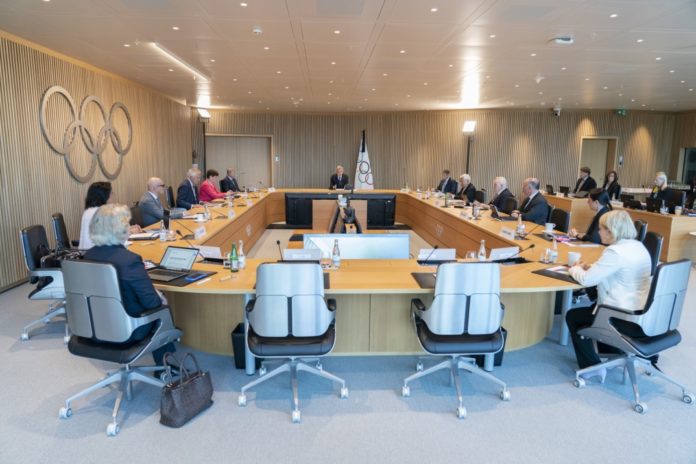By Sahr Morris Jnr
The International Olympic Committee (IOC) Executive Board has confirmed the approval of its Strategic Framework on Human Rights, which includes a provision to drive “best practices in the selection of future Olympic Games hosts.”
In a 50-pager document released by the International Olympic Committee, it stated the ways in which the organisation plans to use the framework to shape the Olympic Games’ and the Olympic Movement’s working practices, and ensure that human rights are respected “within their respective remits.”
“In order to fulfil the goal of Olympism, all constituents of the Olympic Movement need to respect internationally recognised human rights within their respective remit,” the framework says.
“It is said to tie in with recommendation 13 of Olympic Agenda 2020+5, which called for the adoption of a strategic framework on human rights as part of a commitment to “lead by example in corporate citizenship.”
The approval of the framework comes two-and-a-half years after it received a report entitled “Recommendations for an IOC Human Rights Strategy”, produced by Prince Zeid Ra’ad Al-Hussein, a former United Nations High Commissioner for Human Rights, and Rachel Davis, vice-president of Shift, a non-profit centre of expertise on business and human rights.
What are described as “the IOC’s three spheres of responsibility” are outlined in the framework, covering the IOC as an organisation, as owner of the Olympic Games and leader of the Olympic Movement.
Five areas of interest also form the basis of the framework – equality and non-discrimination, safety and wellbeing, livelihood, voices and privacy.
The IOC as an organisation covers the areas of governance and administration.
As owner of the Olympic Games, the framework aims to influence the election of future hosts and the organisation and delivery of the multi-sport event.
This marks a notable provision within the framework given that the most recent edition of the Olympics – the Winter Games in Beijing – was marred by criticism of the human rights record of host nation China.
The third sphere covered within the framework is the IOC as leader of the Olympic Movement, which involves it accelerating the adoption of human rights-related measures by National Olympic Committees and International Federations.
The IOC said that its work in each of these areas would be carried out in accordance with the UN’s Guiding Principles on Business and Human Rights.
Included are 16 objectives to achieve by 2024.
These include amending the Olympic Charter at next year’s IOC Session, and updating the “Basic Universal Principles of Good Governance” and creating a Human Rights Advisory Committee by the end of the current year.
The IOC also seeks to “promote adherence to the social and environmental standards” in its supply chain.



